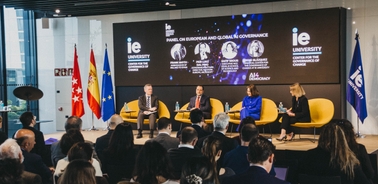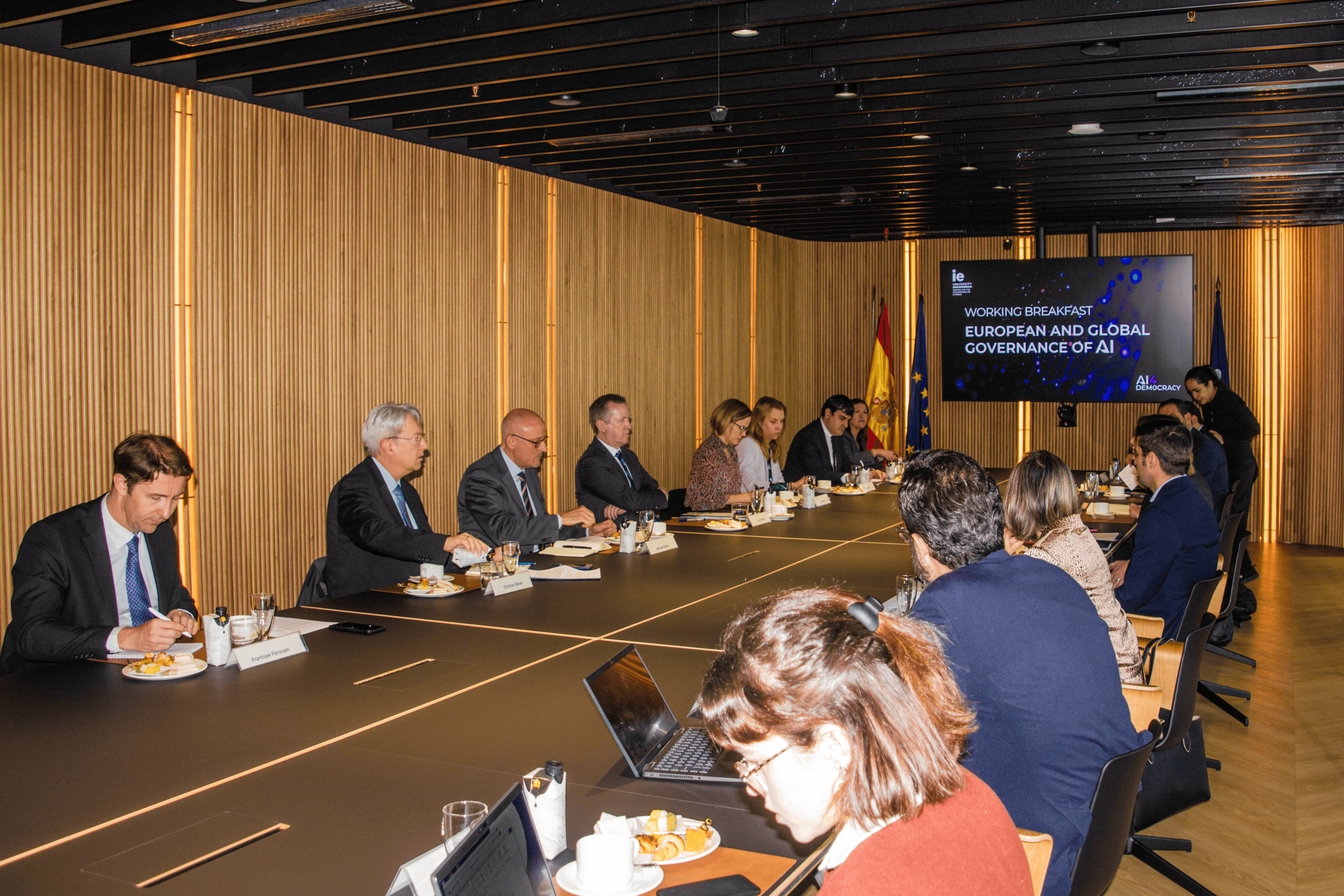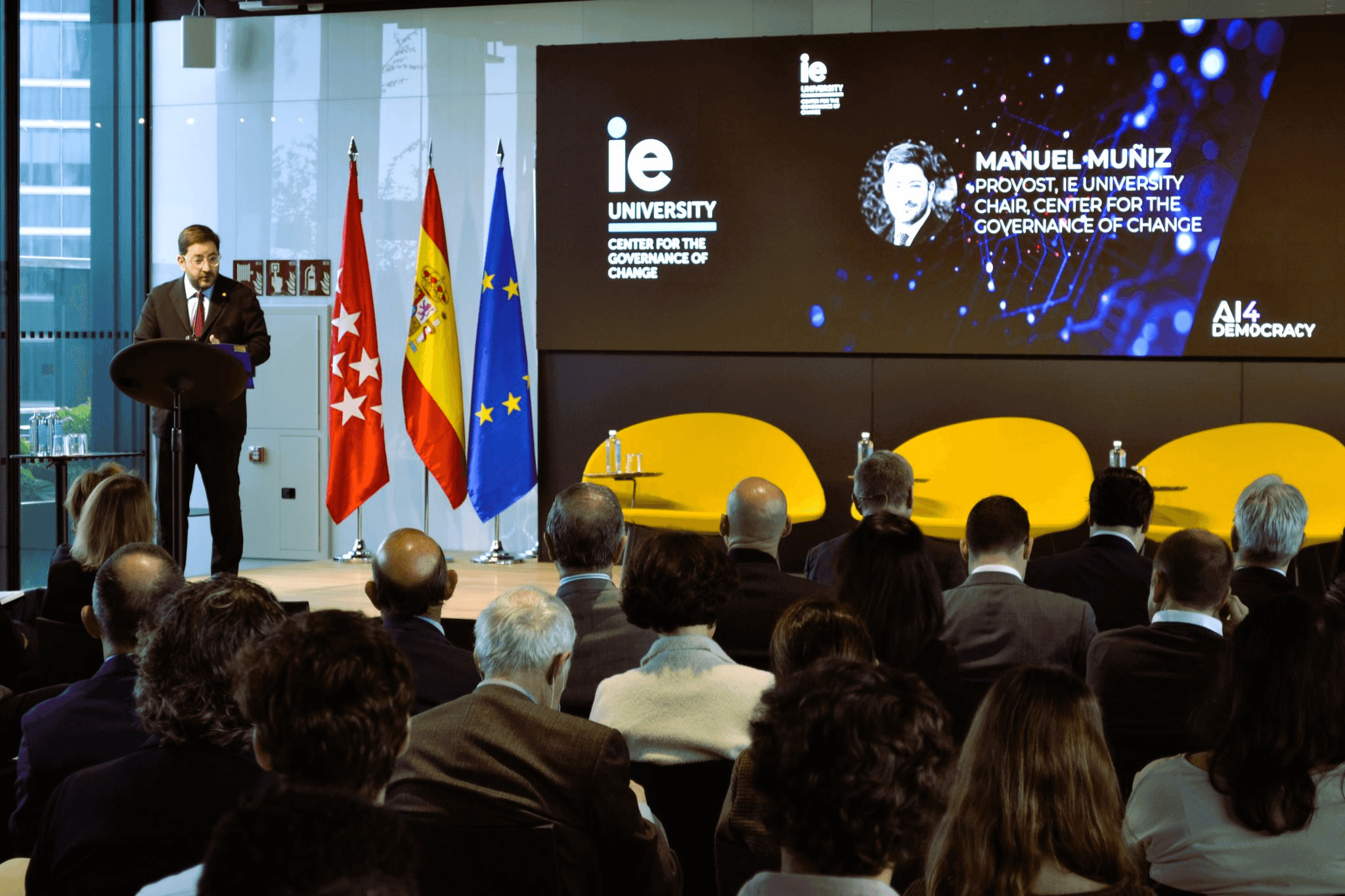- Home
- News And Events
- News
- The Ai Act Should Inspire A Global Ai Governance Framework, Leaders Agree
The AI Act Should Inspire a Global AI Governance Framework, Leaders Agree

On March 19, 2024, the Center for the Governance of Change (CGC) at IE University hosted a public conversation on the AI Act and the EU’s potential to be the global leader on AI governance, with the Irish Ambassador to Spain Frank Smyth, Pier Luigi Dal Pino (Government Affairs Director for Western Europe at Microsoft) and Rafif Srour (Executive Vice Dean of the IE School of Science and Technology), moderated by CGC Director Irene Blázquez. The event was kicked off with opening remarks by IE University Provost and CGC Chair Manuel Muñiz.
The speakers shared their views on the AI Act, the world’s first comprehensive AI law, adopted the previous week by the European Parliament. Consensus emerged regarding the AI Act's wide-reaching potential to guide approaches to AI regulation, in a way that advances innovation while promoting the safety and responsible use of this critical technology. Also raised was the need for multi-sector and international collaboration to achieve a harmonized global AI governance framework.
The public conversation was preceded by a closed-door roundtable of Ambassadors, policymakers and leaders of the private sector, on the same topic of European and global AI governance. In addition to Ambassador Smyth and Pier Luigi Dal Pino, participants included Danish Ambassador Michael Braad, Finnish Ambassador Sari Rautio, Luxembourgish Ambassador Christian Biever, Councilor of State and former Spanish Deputy Prime Minister Soraya Sáenz de Santamaría, José Marino García (Head of the Strategic Projects Unit at the Office of Economic Affairs and G20 of the Cabinet of the Spanish Prime Minister), Beatriz Sanz (Global Data and AI Partner Leader at EY Consulting) and Gabriel López (Director of Institutional Relations and Regulatory Affairs at Microsoft Iberia).
Ireland, Denmark, Finland, Luxembourg and Spain are among the members of the D9+ group of digital frontrunner EU countries, currently chaired by Ireland. During the day’s two sessions, and ahead of the D9+ Ministerial meeting to be held in Dublin next month, Ambassador Smyth stressed the importance of a multi-stakeholder approach to AI norms that allows for mutual learning between regulators and those being regulated.
Pier Luigi Dal Pino advocated for always maintaining human control over AI so that algorithms can be blocked if need be, while Rafif Srour emphasized the role of academia as a neutral science-based actor that can research and advance innovative solutions. Provost Muñiz highlighted AI’s potential to defend democracies against threats like disinformation and cyberattacks and make democratic systems more participatory and effective.
The closed-door roundtable and the public conversation are part of AI4Democracy, an initiative by the CGC which seeks to create knowledge and mobilize democratic governments, companies and civil society towards harnessing AI to defend and strengthen democracy.

